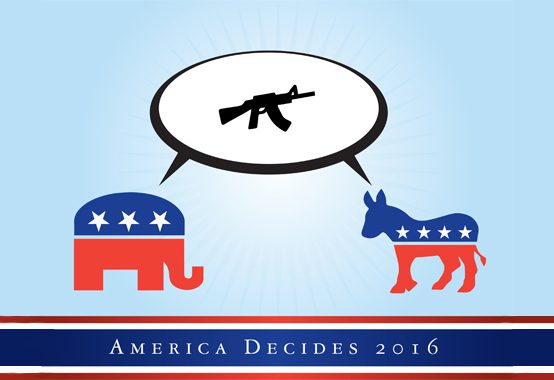The Third Presidential Debate’s Neglect of Foreign Policy

As I feared, the final presidential debate paid almost no attention to foreign policy except as it related to Iraq and Syria. I’ll comment on the candidates’ answers in a later post, but first I wanted to say a few things about the almost total neglect of foreign policy in the general election to date. Foreign policy is without a doubt one of the principal responsibilities of the president, and it is an area where the president has the greatest leeway with the least resistance from the other branches of government. Congress’ abdication of responsibility in this area is well-known. That suggests that the presidential candidates’ views on foreign policy should be among the most important things to know about them, and it means that voters need to be informed about the candidates’ understanding of the relevant issues and how to address them. For the most part, that isn’t happening, and it’s a serious problem that ought to concern us all.
Perhaps more than in any election cycle since 2000, foreign policy has received remarkably little attention in the general election (and it didn’t receive much more during the primaries), and many pressing issues have been ignored entirely throughout the campaign. The war in Afghanistan and the war on Yemen are among the most obvious and damning omissions in my view, but one could find quite a few other other important things that the candidates have never been asked about. We have almost no idea how either candidate would approach approximately nine-tenths of the rest of the world, and the election is in less than three weeks. That is pathetic even by our usual poor political standards.
To some extent, the neglect of foreign policy is a reflection of voters’ lack of interest in it, but that can’t fully account for the consistent absence of questions about ongoing wars that the U.S. is involved in or actively supporting. Coverage of foreign policy in presidential candidate debates has often narrowly focused on the Near East and terrorism, but last night’s debate verged on being a parody of that. Based solely on last night’s debate, the average viewer would conclude that the U.S. was involved nowhere else in the world except in Syria and Iraq, and there would have been no indication that the U.S. is still fighting in Afghanistan after fifteen years or that it has been enabling the wreckage of Yemen for eighteen months. The candidates have never been asked what they would do about these wars, and they aren’t being asked about them because the U.S. role in these wars isn’t even being publicly acknowledged during our election process. The U.S. is perpetually at war, and some of those wars aren’t even up for debate during the process of choosing the next president. No matter what one thinks about the policies in question, that cannot possibly be healthy for our country or our system of government. It isn’t possible to hold candidates accountable for policies that they are never asked about and have never had to defend publicly, and a president can’t be kept in check when he or she is never challenged to justify policies that entangle the U.S. in foreign conflicts. If our system is failing so completely during an election year, it seems certain to be even worse once the campaign is over. The debates were the time to demand answers from the candidates on these and other pressing issues, but that opportunity has been thoroughly squandered.
Comments